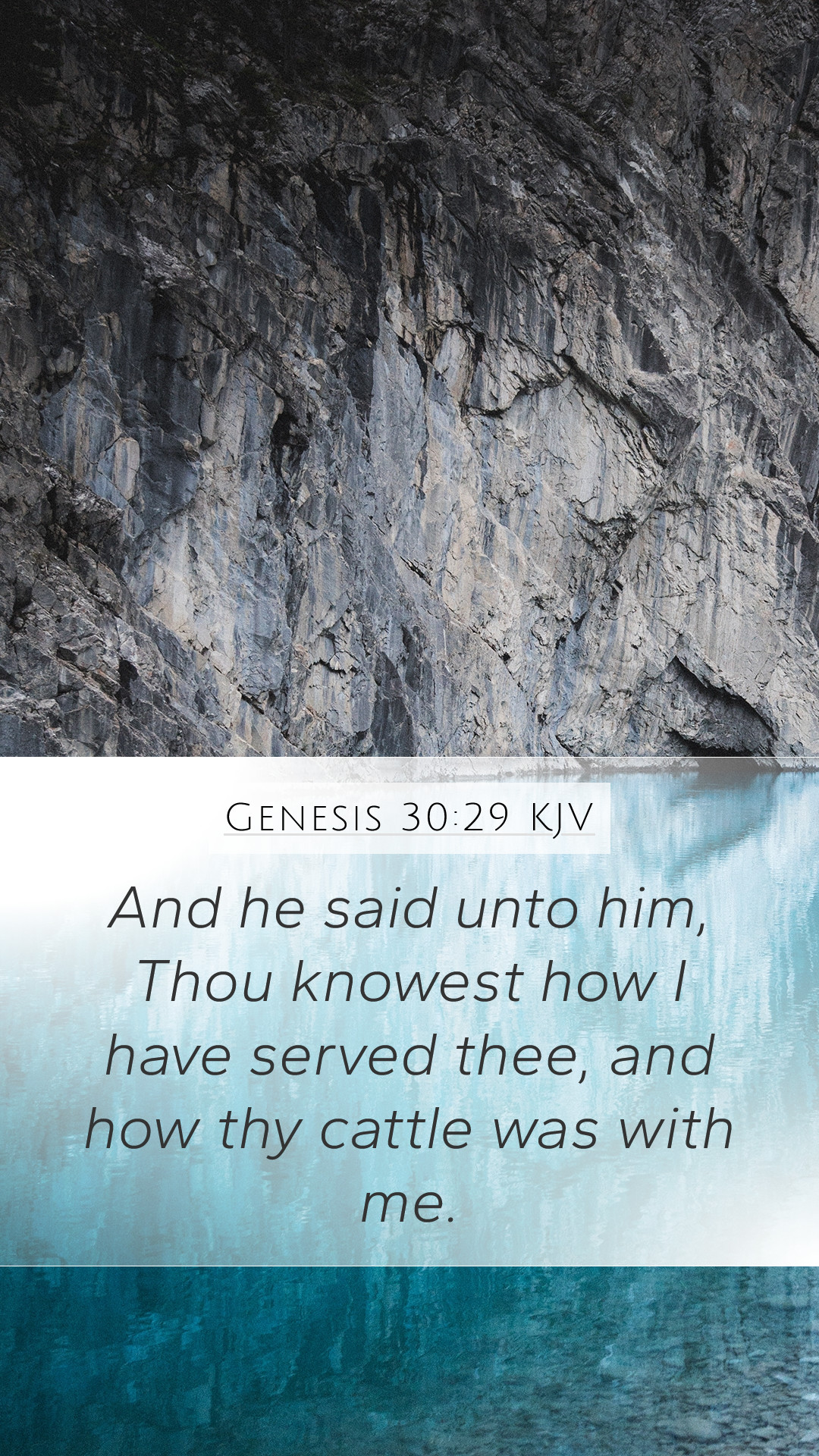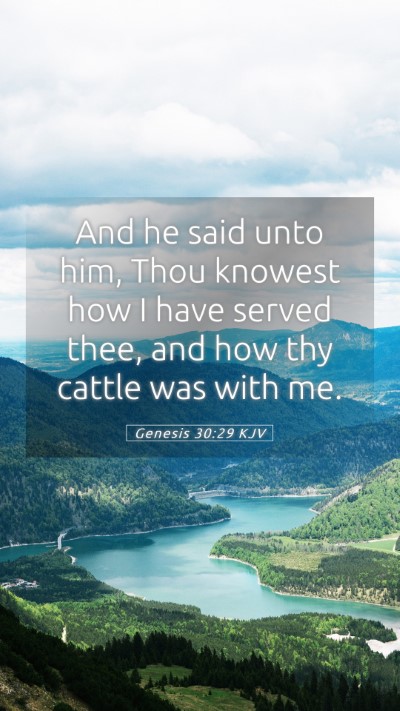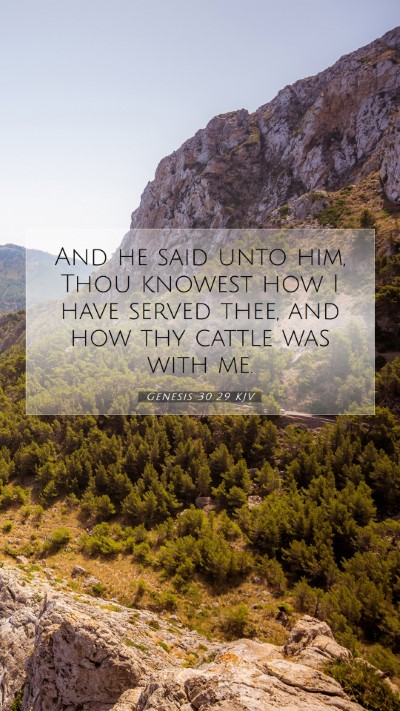Understanding Genesis 30:29 - Bible Verse Explanation and Commentary
Genesis 30:29 states: "And he said unto him, Thou knowest how I have served thee, and how thy cattle was with me." This verse is part of the larger narrative regarding Jacob, Laban, and the beginnings of the Israelite people. This commentary aims to unpack the verse through a combination of insights from historical context and biblical exegesis.
Verse Context and Background
To fully grasp the meaning of Genesis 30:29, it is crucial to understand its place within the Genesis narrative. Jacob, having served Laban for many years, is now addressing Laban about the duration and nature of his service. This exchange reflects significant themes of labor, reward, and divine providence.
Historical Context
This moment occurs during a pivotal time when Jacob is negotiating with Laban regarding the ownership of livestock that he has helped to increase. The interaction reveals the nature of both characters—Jacob's cunningness and Laban's deceitfulness.
Interpretation of Key Phrases
- "Thou knowest how I have served thee": This emphasizes Jacob's commitment and hard work during his time with Laban, showcasing a strong work ethic.
- "How thy cattle was with me": This indicates the increase in Laban’s wealth due to Jacob’s presence, suggesting that Jacob's productivity was a blessing to Laban.
Insights from Public Domain Commentaries
Matthew Henry's Commentary
Matthew Henry elaborates on the attributes of Jacob's character in this verse. He notes that Jacob's service to Laban was exemplary, characterized by diligence and loyalty. Henry highlights how Jacob reminds Laban of his contributions, emphasizing the importance of recognizing hard work and divine favor.
Albert Barnes' Commentary
Albert Barnes underscores the importance of the relationship dynamics between Jacob and Laban. He points out that Jacob's statement serves as both a reminder to Laban and a testament to God’s faithfulness. Barnes also remarks that this verse foreshadows the blessings that are about to unfold in Jacob’s life as he transitions from Laban’s household.
Adam Clarke's Commentary
Adam Clarke offers insights regarding the significance of livestock in ancient cultures, explaining that cattle represented wealth and status. Clarke emphasizes that Jacob’s statement not only highlights his labor but also signifies the blessings received from God, indicating divine providence at work in Jacob’s life.
Spiritual Lessons and Applications
This verse provides profound lessons for contemporary readers: it emphasizes the value of hard work, the acknowledgment of others' contributions, and the faithfulness of God in rewarding diligent efforts.
For those studying the Bible, this verse encourages the practice of Bible study insights through engaging with the text's rich historical and cultural contexts.
Application of the Verse
Believers are encouraged to apply the lessons from Genesis 30:29 by embodying the characteristics of faithfulness and integrity in their work. It serves as a reminder that God recognizes and rewards our labor in both spiritual and secular spheres.
Cross References
- Genesis 31:6-7: Jacob speaks again to Laban about his service and the deceit he encounters.
- Colossians 3:23: This verse emphasizes working heartily as for the Lord, highlighting the same theme of diligence.
- Proverbs 14:23: Further establishes the truth that hard work leads to profit, reflecting the overall message of this verse.
Conclusion
In essence, Genesis 30:29 encapsulates the principles of hard work, divine blessing, and the dynamics of relationships. For anyone seeking Bible verse meanings, understanding Scripture, or engaging in Bible study resources, this verse serves as a pivotal example.


